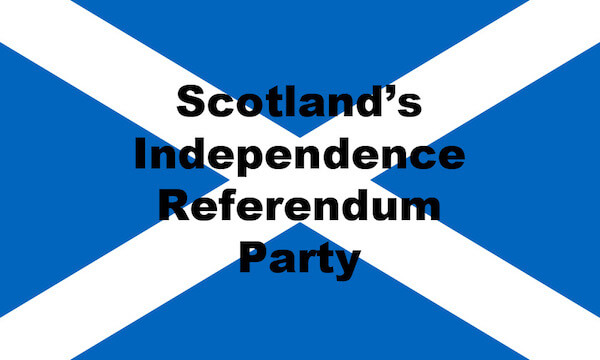PRO-UNION PARTIES in Scotland have spent much of the General Election campaigning against a second referendum in Scotland, but something is curiously absent.
In March the Scottish Parliament already voted to request a referendum on Scottish independence from UK Government, where the power to hold a legal referendum resides.

Scottish Tories, Labour, Lib Dems and Ukip all ignore parliamentary vote for #ScotRef
The parliament entered into this debate and vote on the basis of the Scottish elections in 2016, which saw the SNP win the most seats on a manifesto saying another referendum could be held on the basis of the UK voting to leave the EU and Scotland voting to remain. These circumstances transpired in June last year and First Minister Nicola Sturgeon immediately signalled it would be “highly likely” to lead to another referendum.
Against a second referendum
All four unionist parties are adamant that they will not support a second referendum. The multilateral position, it must be born in mind, is that they will not support a referendum taking place – not that they would support a pro-union position in any future vote.
The Scottish Conservative manifesto reads: “A vote for me and my group of candidates at this election is a vote that says we don’t want their second referendum.”
The Scottish Labour manifesto reads: “Labour opposes a second Scottish independence referendum.”
The Scottish Liberal Democrats manifesto reads: “We will oppose a second independence referendum and oppose independence”.
Ukip’s wording makes it completely explicit. They will “rule-out a second referendum”.
There is no mention in any of this of the Scottish Parliament’s vote in March, at which all three main unionist parties were present, and offered their case against requesting another referendum – a case ultimately voted down.
What parliament matters for securing ScotRef?
The 2014 referendum was preceded by the Edinburgh Agreement in 2012, organising a temporary transfer of powers from Westminster to the Scottish Parliament.
Sturgeon has said repeatedly that the 2014 referendum represents the precedent that any future referendum must follow. She has said this not only to unionist opponents but also to members of her own party, notably former leader Alex Salmond, who have suggested alternative routes to independence.
According to polling, the Scottish Parliament has support from the public to make decisions on a future independence referendum.
One could therefore claim it is disingenuous for pro-union parties to be campaigning against independence in the General Election. To be fair, parties often campaign on policy matters out with the competencies of the bodies they are seeking election to. All the pro-union parties contain policies on devolved Scottish areas in their manifesto and the SNP has campaigned on its Scottish Government record.
However, the clear goal of these pitches is that seats lost from the SNP to them will be used to argue that the public is losing appetite for another referendum, just over a year since it voted in a Scottish Election on the issue
Does this really effect the Scottish Parliament?
The Scottish Parliament is moving through a sensitive period in its history, largely bound up with the ways in which Brexit will change UK constitutional politics.
First, in January this year, the UK Supreme Court ruled that it was Westminster was sovereign over devolved parliaments, even in circumstances where it decisions impacted devolved competencies.
This meant the end of a long-standing convention whereby devolved administrations maintained full control over their areas of governance.
Second, questions began to be raised about the destination of powers returning from the EU to the now fragmented UK political scene. Would they return to devolved administrations or central government? The debate on this issue continues.
The refusal of the Scotland’s major opposition parties to stand by the Parliament on a crucial vote can be seen as a third factor.
This article was first published at:
https://www.commonspace.scot/articles/11111/analysis-how-scotland-s-pro-union-parties-forgot-about-scotref-ge17-campaign



